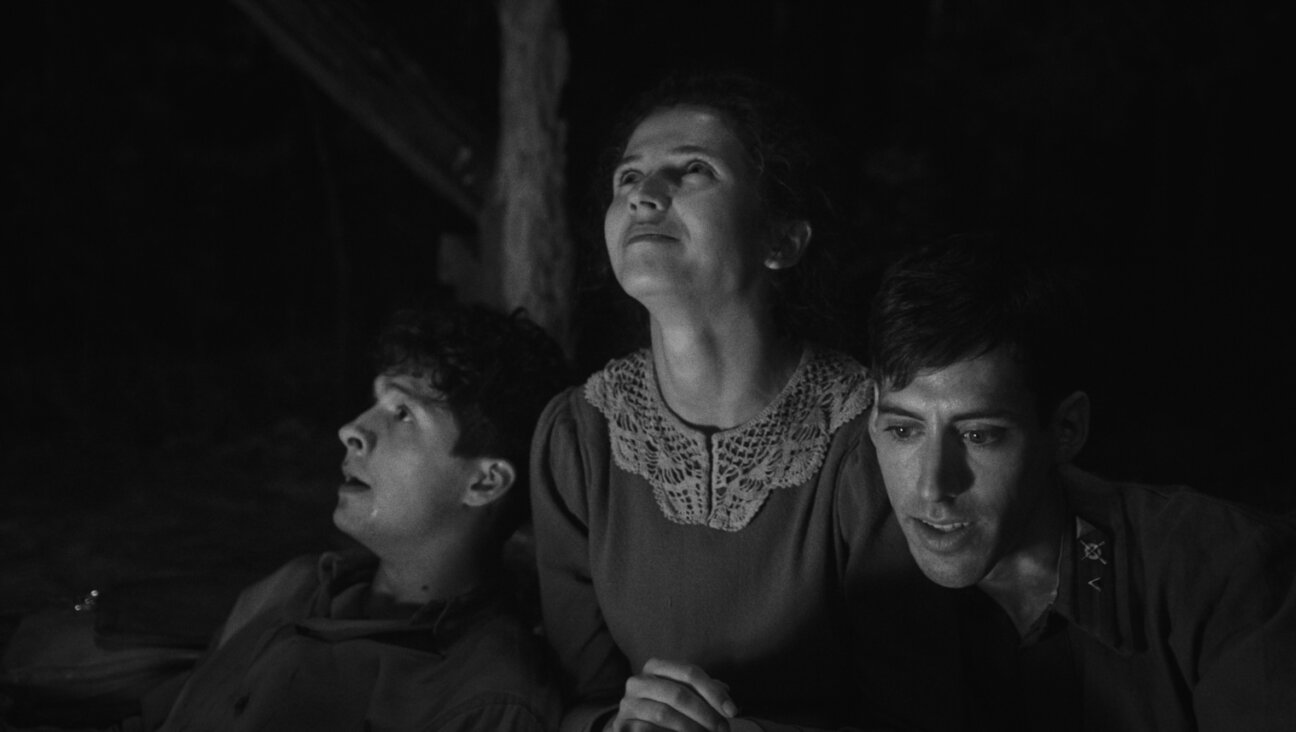Why saying ‘L’shana Tova’ on Rosh Hashanah may not be the correct phrase
Many Jews (and non-Jews) seek advice about the proper grammar and usage of the well-known Rosh Hashanah greeting, ‘Shana Tova’

Photo by iStock
With the 2024 High Holidays upon us, we’re refreshing and republishing older stories about the holiday season for readers to enjoy with updated information. This story was originally published on September 20, 2017.
Rosh Hashanah is behind us, but your e-mails about it are not. Two that arrived this week address the same issue. One, from Sue Mackson of Poughkeepsie, N.Y., declares:
“I get crazed, but probably shouldn’t, when I hear (and it happens quite a lot) folks wish each other ‘l’shana tova.’ I think the phrase is properly shana tova, without the l’. Or am I overdoing my annoyance?”
And from Allan Nadler, professor of religion and director of the Jewish studies program at New Jersey’s Drew University, comes the request that I write “a piece for the Forward about the Hebrew illiteracy of American Jews, as typified by l’shana tova greetings.” Sending me a photograph of such a greeting card, which he received from Philadelphia’s Gratz College, Professor Nadler writes:
“I got the same message from the Jewish Theological Seminary in New York.
L’Shana tova… what? It’s really depressing.”
Both Professor Nadler and Ms. Mackson are referring to the fact that the Hebrew words l’shana tova, “for a good year,” are but part of the traditional new year’s greeting of l’shana tova tikateyvu, “May you be written [in the Book of Life] for a good year,” and make no grammatical sense in themselves. If one wishes to abbreviate the greeting, the grammatically correct way to do so is by saying shana tova, “a good year,” without the l’, or “for,” which stands in need of a phrase to follow it.
Both Professor Nadler and Ms. Mackson are certainly right about the grammar of l’shana tova. Nor would I dispute Professor Nadler’s assertion that the level of Hebrew literacy among American Jews is dismayingly low. Yet, is l’shana tova really such a good example of this? I’m far from sure. In the first place, one sometimes hears it from Hebrew-speaking Israelis, too. And second, the shortening of stock greetings is far from a uniquely Hebrew phenomenon, as we can see by looking at English. Here’s the beginning of a conversation that could take place anywhere in America:
“Morning.”
“Morning.”
And the same conversation might end:
“Bye.”
“See you.”
None of this seems to bother anyone, even though the speakers say “morning” when they mean “good morning”; use a word, “bye,” that is a contraction of a contraction — “goodbye” is originally an abbreviated form of “God be with you” — and utter a sentence, “See you,” that has a verb and direct object but no subject and is in the wrong tense to boot. (Who is the seer, and why doesn’t he use the future tense?) Is this any less outrageous than saying l’shana tova?
One might object that in these English examples it is the first part of the utterance that has been deleted for brevity’s sake, while in the case of l’shana tova it’s the second part. This doesn’t seem to me a significant difference, but let’s say, for the sake of the argument, that it is. Do we have closer parallels to l’shana tova in English?
Indeed we do. It’s not uncommon, for instance, to hear Americans say, “Well, have a happy” when referring to an occasion about to take place. To paraphrase Professor Nadler: Have a happy… what? Birthday? Anniversary? New Year’s Day? Although this isn’t an expression I particularly like, one can’t accuse those who use it of English illiteracy. At most they’re being flippantly cynical, as if implying that all celebrations are so alike that there’s no need to differentiate between them.
Or let’s take another expression that I not only don’t dislike but use all the time, as I did today when I ended five e-mails with “Best,” followed by my name. Once again, Professor Nadler might ask: Best… what? Wishes? Regards? If that’s what one means, why not say it? Preceding a signature, “Best” is an adjective that should no more be able to stand by itself without a noun than “Warm” or “Sincere” — yet while we do not end our letters with the latter two words, we see nothing wrong with ending them with “Best.” Why is l’shana tova any worse? Ms. Mackson’s annoyance with it indeed seems to me overdone.
I don’t mean by this to disagree with Professor Nadler’s larger point. Even Jewishly educated American Jews, unless they have spent a significant amount of time in Israel, have woefully little proficiency in Hebrew. I have more than once encountered graduates of 12 years of Jewish day school who could not successfully conduct a simple Hebrew conversation, let alone a more serious discussion, and it is certainly ironic that Hebrew, which was once the international language of the Jewish people, has ceased to be so precisely in an age in which it has again become, for the first time since antiquity, the spoken language of millions of Jews. There’s a great deal to ponder in that. I just don’t think that l’shana tova has much to do with it.
















